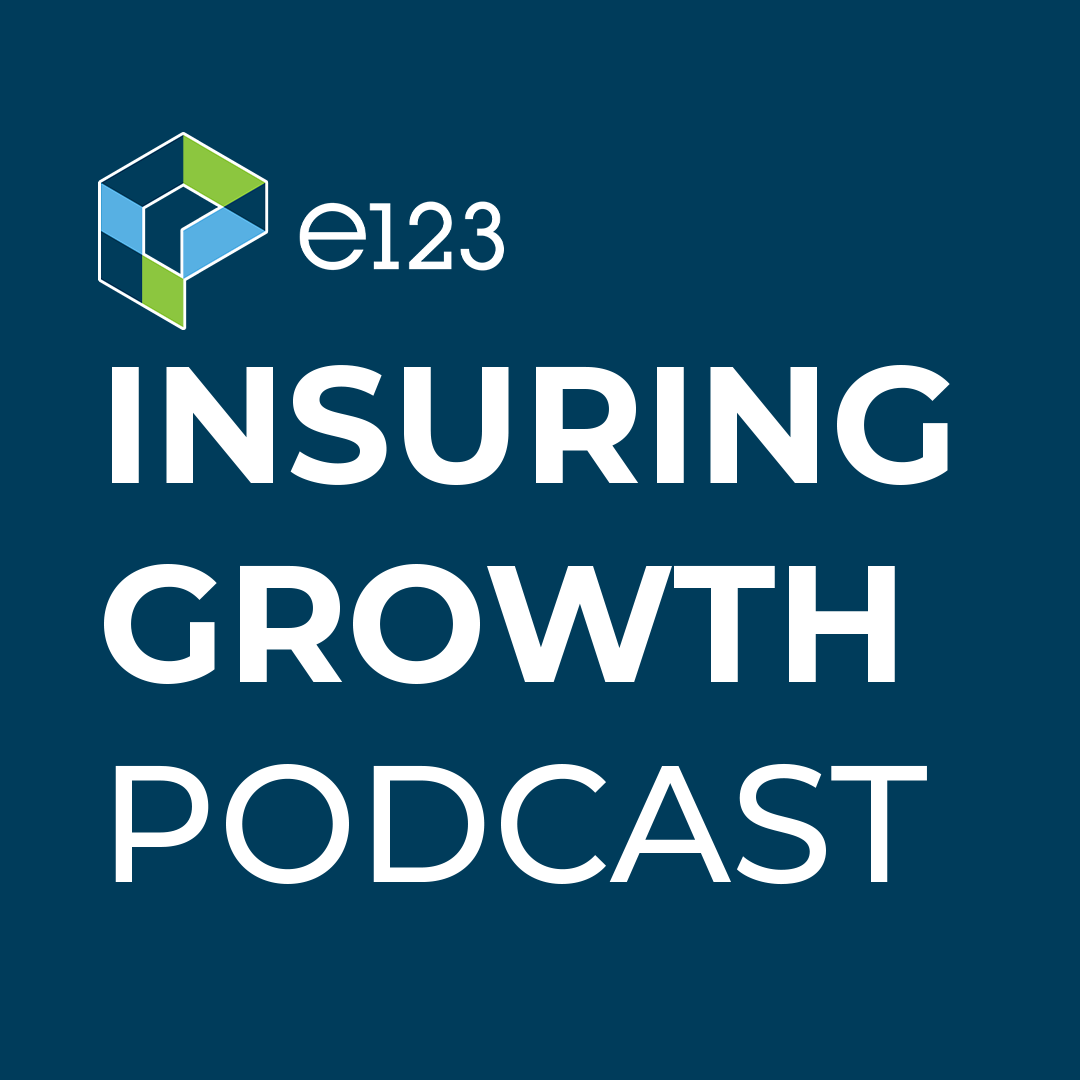How Technology and the Right Data Can Enhance Insurance Marketing Amid New Trends and Regulations

Executives from several leading players in the health insurance market spoke to attendees at the annual Inter-Company
Marketing Group (ICMG) Conference in Tampa. The panel, moderated by Charlie Harris, President of National Health Insurance Company, featured Brendan McLoughlin, President of e123, Susan Plumer, Chief Growth Officer at ConnectureDRX, and Jeff Smedsrud, CEO and Founder of Flex Benefits.
As the panelists tackled important questions about technology, ever-changing regulations, and expected industry changes from the new administration, a few common themes emerged. Technology and AI are enabling the industry to access and use data in new ways. Those who leverage that data to gain a deeper understanding of consumer needs will have a clear competitive edge. That said, the panelists agreed that the role of technology and AI will enhance how agents deliver the best service to customers, but not replace the agent experience.
Accessible Data for Agents
Susan Plumer from ConnectureDRX, a company that provides Medicare enrollment to consumers, kicked off the panel by discussing the importance of readily available data to enable agents to manage their book of business. She described this as the “year of disruption” as 92% of Medicare beneficiaries needed to make a plan change which resulted in agent fatigue. The number of plan and formulary changes was exhausting for agents, which is why analytics are so important. By knowing the plan and formulary changes that were impacting each consumer, agents can proactively look at that data daily to help consumers.
Brendan McLoughlin from e123, a distribution management system (DMS) designed specifically for health insurance that partners with carriers, FMOs, and distributors to ensure they have a single, consistent source of data across commissions, enrollment, agent onboarding, and billing. While other parts of healthcare like pharmaceuticals leverage systems where the entire value chain can access data, health insurance has historically had what Brendan called “silent systems that aren’t sharing data.” Agents will frequently complain about a lack of data on what’s selling, who’s disenrolling, etc. Carriers that figure out how to “empower agents with the data they need to make smart decisions” will overcome agent fatigue and be more successful in motivating agents to sell their products.
The Impact of a New Administration in Washington
Jeff Smedsrud, the CEO of Flex Benefits, which focuses on high-deductible ACA and Medicare Advantage plans, shared his insights as a Washington insider on how the new administration will change the insurance landscape. In his view, many of the expected changes such as a loss of ACA subsidies are questions of when, not if. Short-term medical will return, according to Jeff, but it remains unclear how. A current lawsuit could quickly “toss out the Biden rule” or Congress could leverage the CRA— Congressional Review Act— to vote down any regulation put in place in the last six months by the previous administration. Alternatively, another, albeit slower, route would be a new Trump rule or a new Congressional bill that changes many of the rules on short-term medical.
Jeff predicted that “ICRAs will expand to facilitate the development of gap plans and a move towards making Medicare Advantage the default option for those turning 65” because the cost of MA plans is increasing at a lower rate versus traditional Medicare. This change alone could represent $12 billion in annual savings.
Jeff also suggested that this will be the “year of the third-party platform” as healthcare.gov and medicare.gov will likely be sunset. Expensive and underutilized, these sites are “on the Elon Musk radar.” Susan agreed with the trend towards third-party enrollment systems as one enrollment system simplifies things for agents. The panelists recommended that all parties scenario plan for how they will adapt to these impending changes because “whoever’s got the most intuitive, fastest platform is going to win.”
Transparency and Competition
As the topic changed to cost transparency and fiscal conservatism, Brendan brought up the Blue Cross Blue Shield settlement that could open up competition between states, in addition to all the changes coming from Washington. As the industry moves toward transparency and competition, it’s no longer just about having the best product, but how carriers candistribute their products. In the context of short-term medical plans, Brendan encouraged attendees to think beyond how they can quickly create new products to fit the new rules and think ahead about how they are going to sell those products on a local level.
Agents are the key to winning local business. While carriers are focused on provider networks and medical loss ratios, they need local agents to develop relationships with consumers who are concerned with their local doctors, pharmacies, and health systems. To supercharge local sales, you need technology to empower thousands of agents. Carriers that can motivate every individual agent to sell a few more policies through online applications and transparent commission reports will win.
The Role of the Trusted Advisor
The panel discussed the importance of agents being trusted advisors. Agents need to go beyond comparing plans on a spreadsheet with a customer and really understand their needs. As a trusted advisor, they should find the best-fit plan that drives lifetime value and persistence while decreasing customer acquisition costs. The only way for agents to do this is by arming them with the most comprehensive and accurate data.
Technology and AI may be able to take the place of an initial screening call, but the trusted relationship and decision-making process between the agent and consumer isn’t going away. Agents, not AI, can truly understand a customer’s pain points, such as fear of medical debt or paying a high deductible for multiple years, and find solutions such as gap plans. That said, AI can facilitate the process by compiling the data that helps agents determine what product to sell to who at what time. With the anticipated push for deregulation and increased flexibility in product portfolios, the role of the agent as a trusted advisor becomes even more important. Brendan told attendees that even as ACA subsidies are reduced, there will be many first-time ACA buyers as Medicaid shrinks. And the return of short-term medical means gap plans and add-on ancillaries are also more important.
This technology-enabled trusted advisor approach, according to Jeff, allows the industry to “play offense and reset the dialogue of what we do. We help people solve their pain points. We provide them valuable protection.”
Agility in the Face of Ever-Changing Rules and Regulations
Amidst all the change, agility will be critical and Brendan explains “agility doesn’t just mean fast it means the ability to adjust while you’re going fast.” Companies need to make business decisions about ACA and short-term medical plans now in anticipation of the new rules. And then figure out a technology plan that supports the business plan. With the right technology, agile should be easy.
Beyond supporting the individual agent, the data behind every transaction can be used to fuel strategic decisions. Brendan explains, “Each agent has a rejection rate. And each agent has a rejection rate for every product. Then build up that data for every agency for every product in every geography. They have an acceptance rate and a rejection rate. They have a rapid disenroll rate. They have a persistency rate. We have almost 400,000 agents in the e123 system and you can share that information. It’s about training and giving the agents the attention that they need to not just make the easy sale, but to make the sale that’s going to result in the best lifetime value. And we can look at the big picture. Where are you investing your commission dollars and your marketing funds?”
Jeff took this idea one step further and talked about appending data that can help you understand some behavioral and customer decisions and make more intelligent decisions. “I’ve looked at similar agencies in the ACA market. One had a 13-month persistency and the other had a 28-month persistency for ACA plans. And when you dig deep into it, you discover all the things the one did that perpetrated poor persistency and all the things the other one did to have a very high persistency. So, utilize those tools.”
As the panel concluded, the resounding theme that echoed across the group was that if you have the right data and tools to utilize the data, it will be much easier to respond to ever-changing regulations. Furthermore, using that data to proactively enhance how agents interact with consumers will give you the ability to be agile and have a clear competitive advantage.
Contact us here to learn more about e123 portfolio offerings, including e123 Commission Management.






